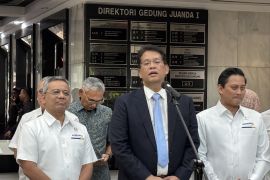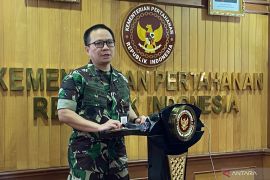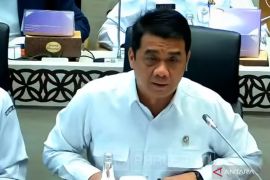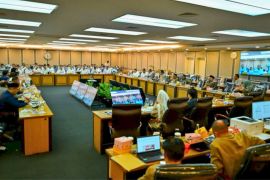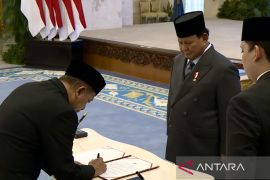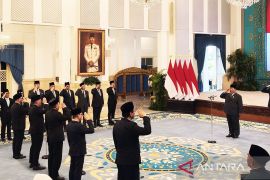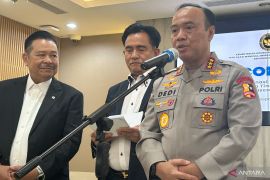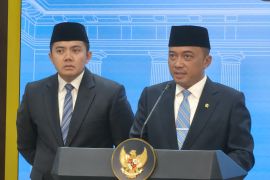French Foreign Minister Laurent Fabius called Assad a murderer and Australia`s Bob Carr said those responsible for the massacre at Houla would be held to account.
"Bashar al-Assad is the murderer of his people. He must relinquish power. The sooner the better," Fabius said in an interview with French daily Le Monde.
Australia, Britain, Canada, France, Germany, Italy and Spain announced the expulsions after consultations with each other on what they called unacceptable levels of violence.
The action marked a new phase in the international effort to halt the repression of a 14-month-old uprising against Assad and to force him to relinquish power.
The immediate catalyst was Friday`s massacre in Houla, including women and children, although the international community is increasingly frustrated at the failure of a U.N.-brokered peace plan to end the bloodshed in Syria.
"This is a country that is committing such horrors that we cannot deal with them at an ambassador level," a French diplomatic source said. "This decision was made following the Houla massacre. It was coordinated among several countries."
Syrian officials denied any army role in the massacre, one of the worst single incidents in the conflict.
British Foreign Minister William Hague said the expulsions aimed to tell Assad and his ruling elite that time was running out for them to comply with the peace plan.
"The world, the international community, is appalled by the violence that has continued, by the behaviour of the regime, by the murder of so many innocent people, including in the terrible massacre at Houla," Hague said.
Some governments told the diplomats to leave immediately, others gave them up to seven days to pack their bags.
Clear Message
Australian Foreign Minister Carr called the Houla killings a hideous and brutal crime.
"The Syrian charge (d`affaires) has again been advised to convey a clear message to Damascus that Australians are appalled by this massacre and we will pursue a unified international response to hold those responsible to account, he said.
Turkish Prime Minister Tayyip Erdogan also condemned the killings and said there was a limit to the world`s patience.
France`s Fabius, however, ruled out ground intervention in Syria, saying the risk the conflict could spread was too great.
"The Syrian army is powerful. No state is ready to consider ground intervention at the current time," Fabius said.
Some Arab nations have already taken similar diplomatic action against the Syrian government.
Gulf Cooperation Council countries - Saudi Arabia, the United Arab Emirates, Qatar, Bahrain, Oman and Kuwait - expelled Syrian envoys in February then the following month closed their embassies in Damascus.
The new coordinated action from the Western countries took place as international mediator Kofi Annan met Assad in Damascus and told him that "bold steps" were required for his peace plan to succeed.
Annan expressed the international community`s grave concern about the violence in Syria, in particular the killings in Houla, his spokesman said.
More than 10,000 people have been killed since the uprising against Assad`s 11-year-rule broke out in March 2011, most of them opposition supporters killed by the army or security forces.
Assad has been able to count on the support of Russia and China, who have vetoed two moves in the U.N. Security Council to condemn Assad. Russia said on Monday it was alarmed by the killings in Houla but that it believed both sides were to blame. (*)
Turkish Prime Minister Tayyip Erdogan also condemned the killings and said there was a limit to the world`s patience.
France`s Fabius, however, ruled out ground intervention in Syria, saying the risk the conflict could spread was too great.
"The Syrian army is powerful. No state is ready to consider ground intervention at the current time," Fabius said.
Some Arab nations have already taken similar diplomatic action against the Syrian government.
Gulf Cooperation Council countries - Saudi Arabia, the United Arab Emirates, Qatar, Bahrain, Oman and Kuwait - expelled Syrian envoys in February then the following month closed their embassies in Damascus.
The new coordinated action from the Western countries took place as international mediator Kofi Annan met Assad in Damascus and told him that "bold steps" were required for his peace plan to succeed.
Annan expressed the international community`s grave concern about the violence in Syria, in particular the killings in Houla, his spokesman said.
More than 10,000 people have been killed since the uprising against Assad`s 11-year-rule broke out in March 2011, most of them opposition supporters killed by the army or security forces.
Assad has been able to count on the support of Russia and China, who have vetoed two moves in the U.N. Security Council to condemn Assad. Russia said on Monday it was alarmed by the killings in Houla but that it believed both sides were to blame. (*)
Editor: Kunto Wibisono
Copyright © ANTARA 2012

